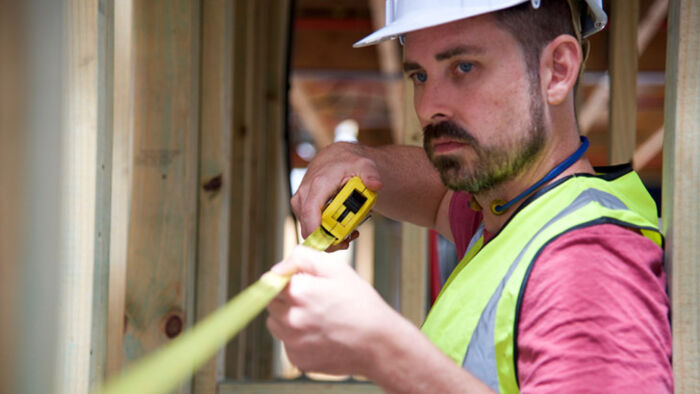How to start your own business as a tradie
By Anthony O'Brien
The construction industry is a mecca for tradies, employing more than 1.1 million of them. The latest data shows it's an industry where tradies typically earn a weekly wage of $1280 - about $66,560 annually.
But according to Service Seeking's Tradie Rich List 2020, almost one in 10 tradies pockets over $200,000 annually. One way to earn that sort of money can be to start your own business. And there are good reasons to consider taking the plunge today.
Australia is in the midst of a building bonanza. A recent report from the Housing Industry Association (HIA) shows the number of housing starts recorded by the nation's top 100 builders in 2020-21 was the highest in the past 28 years, and nearly 20% higher than the previous record set in 2016-17.
"A record volume of detached home building and renovations is occurring," says HIA economist Angela Lillicrap. "All regions across Australia are reporting an acute shortage of skilled trades, and all trades are in short supply."
That's good news for anyone who makes a living with tools, says Daniel Wessels, founder of Jacaranda Finance, one of Australia's largest privately owned finance providers. He adds that if you're a tradie with in-demand skills, chances are there's never been a better time to strike out on your own.
"With Australia's home building and renovation boom expected to continue until 2023, becoming self-employed is an attractive option for tradies who want to maximise their earnings," he says.
Going solo can be personally and financially rewarding. But kickstarting a business calls for careful planning.
Sort your set-up costs
A potential stumbling block for tradies setting up shop can be finding the cash to bring the new business to life, including shelling out for tools and equipment that were previously supplied by an employer.
"If you don't have the cash to buy everything you need upfront, an unsecured loan can be one way to get your hands on the gear you need to get going," says Wessels. "Your cash flow, credit score and time in business will help to determine how much you can borrow and the lending terms and conditions."
"There is certainly plenty of demand for small business finance since lockdowns ended," says Ollie Wade, head of marketing and partnerships at small business lender OnDeck Australia.
"We have seen applications for our loans jump 77% between October and November 2021 alone.
For tradies who are unsure about the funding options available, it can pay to partner with a broker."
Here are five steps for tradies to get their new venture off to a flying start in 2022.
1. Write a business plan
Succeeding in business is easier when you work out where you want to go.
That starts with writing a business plan that outlines your goals and objectives and how you'll set about achieving them. This doesn't just give you a roadmap to follow, it's something lenders may also ask to see if you apply for finance.
2. Add some tech to your toolbox
"The more organised you are, the more money you'll make," says Wessels.
"Using a digital job management platform like AroFlo, ServiceM8 or Tradify from the get-go will allow you to keep track of every job, from initial enquiry to final invoice."
3. Make payments a priority
Getting paid promptly for the work completed can mean the difference between surviving and thriving.
Cloud-based accounting and invoicing software designed for small businesses makes it simple to create invoices, track payments and keep a handle on your cash flow.
4. Establish your brand
Wade says all small businesses need to treat branding as seriously as big companies.
"There may be a shortage of tradies at present, but you want to build your business so that it survives through leaner times and that means using branding to set your business apart from the competition."
Wade recommends investing in smart signage for a work vehicle, monogrammed uniforms that create a professional image and a distinctive logo through affordable graphic design sites such as Fiverr, Upwork or 99designs.
5. Build an online presence
A strong online presence is a must.
"Having your business visible across multiple channels - Facebook, Instagram, Hipages, your website - makes it easy for potential customers to find you," says Wessels.
OnDeck's Wade notes that while social media is a low-cost form of marketing, it needs to be managed carefully.
"A single bad review can bring the business down," he says. "This highlights the need to maintain a high standard of service at all times."
Get stories like this in our newsletters.



